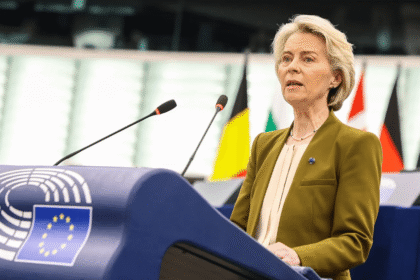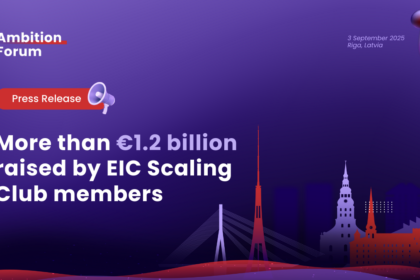The European Research Council (ERC) has selected 478 early-career researchers across Europe to receive this year’s Starting Grants. With a total funding of €761 million, these grants support excellent research across diverse fields, including physical sciences and engineering, life sciences, and social sciences and humanities. The backing will help researchers at the beginning of their careers to launch their own projects, build research teams and pursue their most promising ideas.
You can view a full list of selected Physical Sciences and Engineering projects here.
Ekaterina Zaharieva, European Commissioner for Startups, Research and Innovation, said:
Among the winners in this new round of prestigious EU funding via the European Research Council are researchers of more than 50 nationalities, all advancing knowledge across a wide range of scientific fields. This demonstrates Europe’s potential to attract and keep top scientific talent. We see leading scientists coming to Europe with these new grants, and many choosing to remain here thanks to this support.
President of the European Research Council Prof. Maria Leptin said:
All these bright minds and the plethora of brilliant ideas that they will go after really inspire me, and so does their scientific creativity. It also gives hope that Europe empowers them and backs them. Yet, we could do more! Only 12% of all proposals in this competition are being funded, even if many more are excellent. More investment in this type of science is needed for Europe to reach its full potential.
Projects selected for funding
As part of the EU’s Horizon Europe programme, these ERC grants will help researchers make discoveries across a wide range of fields. The grantees include a researcher in the Netherlands exploring new ways to make artificial touch feel more natural and realistic; an Austria-based scientist investigating how aging reshapes human tissues and triggers disease; a researcher in Estonia studying whether attention deficit hyperactivity disorder (ADHD) in adults mirrors childhood ADHD; and another scientist, based in Spain, examining how plants protect themselves from excessive sun exposure.
These are just some examples of the research that the new grantees will conduct.
Facts and figures
The successful candidates plan to carry out their projects at universities and research centres across 25 countries, including Germany (99 grants), the UK (60), the Netherlands (44), and France (41). They come from Europe and beyond, with 51 different nationalities amongst the grantees, notably Germans (87 researchers), Italians (55), French (33), and UK and Spanish researchers (32 each).

This competition attracted 3,928 proposals, marking a 13% increase in demand from last year’s Starting Grant call. Just over 12% of the proposals will be funded.

The number of women grantees remain fairly stable with 42% female winners in this year’s Starting Grants, and 44% in 2024, and 43% in 2023.
A Starting Grant amounts to €1.5 million for a period of up to five years. However, additional funds can be made available to cover costs related to moving from a country outside the EU or associated countries, purchasing major equipment or the access to large facilities, or major experimental and fieldwork-related costs.
This round of grants is estimated to create some 3,000 jobs within the teams of the new grantees.
See more statistics and the full list of winners





